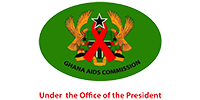HIV and the Contribution of the Private Sector in Ghana
Private Sector & The AIDS Responds
- Home
- Private Sector & The AIDS Responds
The HIV situation in Ghana is improving following consistent decline in trends in the general adult prevalence. The country has experienced stabilization of the national HIV response with a relatively low prevalence of 1.69% in 2018 resulting in 344,713 persons living with HIV in Ghana.
These achievements stem from the relentless efforts of stakeholders coupled with Private Sector participation. The contribution of the private sector in Ghana’s HIV response has been duly acknowledged. Private Sector businesses have addressed HIV prevention including stigma and treatment interventions at the workplace which has eventually created trust among staff and has sustained productivity.
The role of the private sector in helping to deliver the Sustainable Development Goals (SDGs) cannot be overemphasised. It is acknowledged that the private sector can bring much more to the table through their networks, management expertise, capacity and contacts. There is a growing recognition of the need to move beyond philanthropy and corporate social responsibility to embedding national response investments within core business operations.
In order to end HIV as public health threat by 2030, we need to find the most effective way to prevent new cases from occurring. Achieving the 90–90–90 goals for HIV testing, treatment and eradication requires the combined efforts of the Private Sector Business, Partners, Stakeholders, media and public health institutions across the country.
Fast tracking the national HIV response require predictable and reliable annual investment for efficient implementation of our comprehensive services in collaboration with the private sector.
